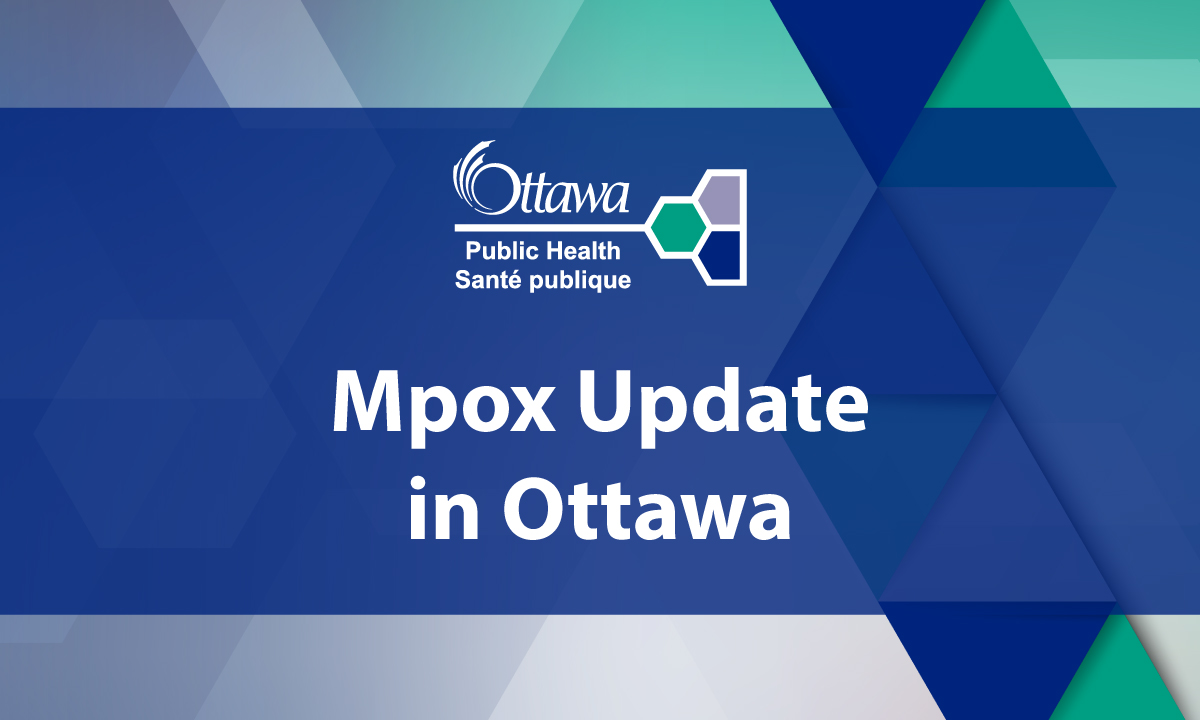Ottawa Public Health (OPH) would like to remind eligible residents at risk of contracting mpox (formerly known as monkeypox) to complete a two-dose vaccination series of Imvamune® as soon as possible. This reminder comes as OPH is following up with two individuals who recently tested positive for mpox in Ottawa. No individuals in Ottawa have tested positive for mpox since October 2022. It is believed the infections were acquired locally.
Anyone can contract mpox. Currently, most affected by mpox are men who have sex with men. There is a vaccine to prevent the acquisition of mpox. To find out who is eligible to receive a two-dose series of the Imvamune® vaccine and to book an appointment for vaccination, please visit OttawaPublicHealth.ca/MPOX.
Ottawa Public Health is working closely with local partners such as MAX Ottawa and the AIDS Committee of Ottawa to encourage eligible individuals who have not been fully vaccinated against mpox with two doses of vaccine, to get their first dose or second dose of the vaccine at one of OPH’s immunization clinic as soon as possible. Individuals who have received a first dose can get their second dose at least 28 days after their first dose.
There is no cost to receive the vaccine and an OHIP card is not required. Eligible residents who are travelling in the near future are also encouraged to get vaccinated before leaving. The vaccine becomes most effective after two weeks.
For a list of clinic locations, vaccination eligibility, and or to book yourself an appointment, visit OttawaPublicHealth.ca/MPOX. Vaccination can protect against the mpox virus and can help reduce serious symptoms. Ottawa Public Health encourages everyone who is eligible to get vaccinated for protection. The sooner the better.
About mpox
Mpox is a viral illness that spreads from person to person through contact with infected lesions, skin blisters, body fluids or respiratory secretions. It can also be transmitted by contact with materials contaminated with the virus (e.g., clothing, bedding) and through bites or scratches from infected animals. At this time, mpox has spread mostly between people who have had close/intimate or sexual contact with a person who has the virus. The virus does not spread through casual contact. Anyone can get infected and spread mpox if they come into close contact with someone who has the virus, regardless of sex or gender, sex practices or sexual orientation, race or ethnicity.
Mpox symptoms usually start five to 21 days after exposure and can include fever, headache, muscle aches, exhaustion, swollen lymph nodes, rash, or blisters on the skin. Most people recover from mpox on their own without treatment.
“Vaccination continues to be the best way to protect against mpox and severe outcomes from mpox. Groups that are eligible for vaccination are encouraged to complete a two-dose vaccination series as soon as possible to help mitigate the circulation of this virus. Ottawa Public Health has been working closely with partners to offer the mpox vaccine to those who are eligible.”
– Dr. Laura Bourns, Associate Medical Officer of Health, Ottawa Public Health
“Getting both doses of the mpox vaccine is the best way to take care of ourselves and our partners. These new cases are a reminder that the virus hasn’t gone away – our early success in slowing transmission last year happened because people got their first dose. Now, we can stop mpox from making a comeback: get both doses, keep an eye out for symptoms, and take care of each other”
– Adam Awad, Executive Director, MAX Ottawa



